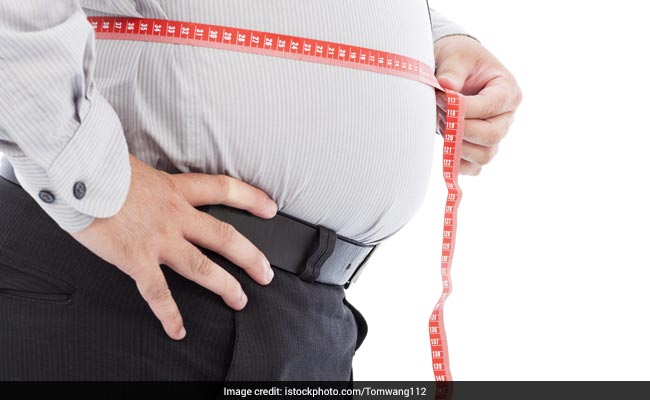Why Understanding the Distinction Between Bloating and Fat Is Very Important for Your Digestion Health
Recognizing the distinction between bloating and body fat is crucial for optimizing gastrointestinal health and wellness. Bloating can be indicative of underlying gastrointestinal concerns or dietary level of sensitivities, while body fat stands for a more steady aspect of general wellness and calls for different considerations. Misinterpreting these 2 problems might lead to ineffective methods that forget the source of discomfort. By clarifying these differences, individuals can better tailor their methods to dietary routines and way of life adjustments. This expedition increases crucial inquiries concerning just how to properly take care of these differing facets of wellness.
Recognizing Bloating
Several people experience bloating at some point in their lives, yet the underlying causes and effects for digestion health and wellness can be complex. Bloating is identified by a feeling of fullness or rigidity in the abdominal area, typically accompanied by noticeable distension. This problem can occur from various factors, consisting of dietary selections, food poisonings, and way of living routines.
Common nutritional perpetrators include high-fiber foods, carbonated beverages, and particular sugars that are badly soaked up in the intestine. Lactose intolerance can lead to bloating after eating dairy products, while too much consumption of beans may cause gas production. Furthermore, overeating or consuming as well promptly can intensify the experience of bloating, as the body struggles to process huge quantities of food effectively.
Stomach conditions, such as short-tempered bowel syndrome (IBS) or gastric condition, can further complicate the experience of bloating, as they usually involve heightened sensitivity and impaired digestion. Recognizing the specific triggers and mechanisms behind bloating is vital for effective administration and therapy, making it possible for individuals to make informed dietary and way of living adjustments to promote optimal gastrointestinal health and wellness.
Identifying Body Fat

Acknowledging the difference between bloating and body fat is important for comprehending one's overall gastrointestinal health and physical condition. Body fat describes the fat that is kept in various regions of the body, functioning as a power book and playing necessary functions in hormonal agent policy and thermal insulation. It is necessary to accurately identify body fat to assess wellness threats linked with too much adiposity, such as cardiovascular illness and diabetes.
To identify body fat, people can make use of numerous approaches, consisting of body mass index (BMI), skinfold dimensions, and bioelectrical resistance analysis. BMI is an extensively utilized tool that correlates weight and elevation; nevertheless, it may not properly show body make-up. Skinfold measurements entail pinching various areas of the body to gauge fat density, while bioelectrical impedance makes use of electrical currents to approximate body fat portion.
Aesthetic assessment can also contribute in recognizing body fat circulation, which can offer understanding into wellness implications. Visceral fat surrounding the organs presents higher health and wellness threats compared to subcutaneous fat located simply beneath the skin. Comprehending these subtleties is essential for embracing ideal health approaches and improving overall health.

Reasons For Bloating
Bloating can emerge from a wide range of aspects that influence the digestion use this link system, causing discomfort and a distended abdomen. One typical reason is the intake of air, which can take place while consuming or consuming alcohol too swiftly, eating periodontal, or smoking (bloating vs fat). This air accumulation can create an experience of volume and stress
Nutritional options likewise play a considerable role in bloating. Certain foods, particularly those high in fiber, such as beans, lentils, and cruciferous veggies, might cause gas manufacturing during digestion. Additionally, carbonated drinks can present excess gas into the gastrointestinal tract.
Food intolerances and level of sensitivities, such as lactose intolerance or gluten level of sensitivity, are other prevalent root causes of bloating. When people consume foods they can not properly absorb, it can lead to gas and discomfort.
Moreover, hormone variations, specifically in ladies during the menstruation, can add to bloating due to water retention and stomach modifications. Last but not least, underlying medical problems, such as cranky bowel disorder (IBS) or gastrointestinal blockage, may additionally materialize as bloating, emphasizing the relevance of proper diagnosis and administration. Recognizing these causes is crucial for efficient signs and symptom management.
Effect On Digestive Health And Wellness
Relentless bloating can significantly impact gastrointestinal health and wellness, influencing total health and top quality of life. Bloating frequently results from the build-up of gas or liquid in the stomach system, bring about pain and a swollen abdomen. This condition can disrupt normal gastrointestinal processes, impairing nutrient absorption and resulting in deficiencies over time.
Moreover, persistent bloating might be a measure of underlying intestinal disorders such as short-tempered digestive tract disorder (IBS), celiac disease, or food intolerances (fat and bloating). When these problems are left unaddressed, they can intensify symptoms and lead to more difficulties, consisting of constipation or looseness of the bowels
The mental repercussions of bloating need to additionally be acknowledged. Frequent pain More about the author can contribute to anxiousness and anxiety relating to eating and social communications, even more making complex one's connection with food and digestion.
Approaches for Administration
Effective administration of bloating requires a complex method that addresses dietary habits, way of life changes, and prospective medical interventions. Originally, individuals need to evaluate their diet regimens, identifying and removing common triggers such as dairy products, gluten, and high-FODMAP foods, which are recognized to contribute to gas and pain. Integrating fiber slowly can boost digestive health and wellness, however too much fiber intake ought to be prevented, as it might exacerbate bloating.

Tension management methods, including mindfulness and deep-breathing exercises, can also play a significant role. fat vs bloating. Anxiety is understood to effect gastrointestinal function negatively, leading to raised bloating
If way of living and nutritional adjustments do not yield alleviation, getting in touch with a medical care expert is recommended. They may advise analysis tests to dismiss hidden conditions such as Short-tempered Digestive Tract Syndrome (IBS) or food intolerances. In many cases, medicines or supplements may be prescribed to relieve signs and symptoms successfully, guaranteeing a comprehensive strategy to handling bloating.
Conclusion
In verdict, distinguishing in between bloating and body fat is necessary for promoting digestive health and wellness. Bloating, frequently resulting from dietary selections or intestinal concerns, needs targeted interventions to investigate this site relieve pain.